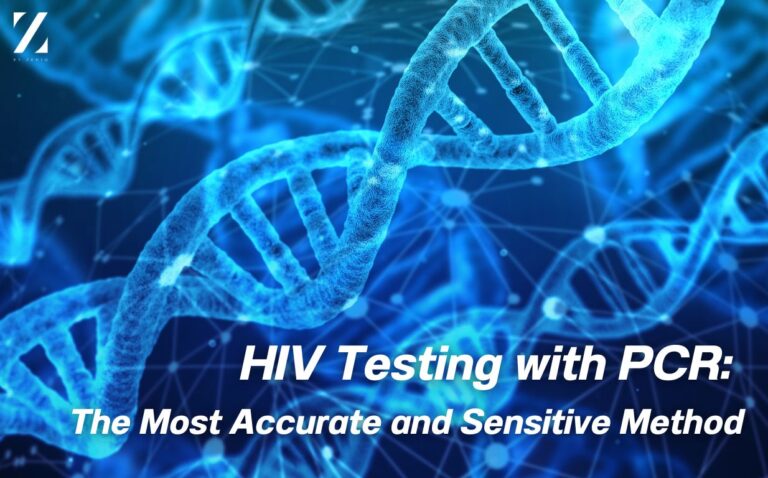Did you know? Thai women have the second highest risk of cervical cancer. The number of deaths from cervical cancer is as high as 4,500 cases per year, and the youngest cervical cancer patient is 20 years old. However, if you know it beforehand, you can also prevent and cure cervical cancer.
This article will take you to see what the symptoms of cervical cancer are so that you can observe the initial symptoms of the disease yourself and reveal the causes. Treatment guidelines and how to prevent cervical cancer Find out in this article.
Clearing doubts What causes cervical cancer?
Cervical cancer is a cancer that occurs in the cervical cells between the lower part of the uterus and the vagina. The main cause of cervical cancer is the Human Papilloma Virus, also known as the Human Papilloma Virus. Sexually transmitted HPV Normally, in a woman’s life, this infection may be introduced into the body. Although the immune system can get rid of the infection. However, the infection may still remain and cause the tissue around the cervix. It can change and develop into cervical cancer.
In addition to HPV, cervical cancer can also be caused by other risk factors, such as:
- It is usually found in people aged 40 years and above.
- Behaviour of changing sexual partners for many people
- Having a large number of children
- smoking
- immunodeficiency
What are the cervical cancer symptoms?
If you experience any of these symptoms, you should immediately consult a doctor for cervical cancer screening.
- Symptoms of vaginal withdrawal such as selective flashing, irregular menstruation, bleeding after menopause, bleeding after sex, etc.
- Abnormal vaginal discharge symptoms such as bloody vaginal discharge and foul-smelling vaginal discharge Vaginal discharge more than usual, etc.
- Pain in the lower abdomen.
- Pain or pain after sex.
- Symptoms of bloody excretion.
- Abnormal weight loss symptoms.
- Back pain, leg swelling, and kidney failure may also occur in the case of severe cancer.
Symptoms of 4 stages of cervical cancer
In addition to the above cervical cancer symptoms, Symptoms of cervical cancer can also be divided according to the stage of this disease.
- Stage 1 cervical cancer is the stage when cervical cancer has not yet spread. Therefore, there are not many obvious symptoms, but there may be bleeding, vaginal discharge, and bleeding during sex.
- Stage 2 cervical cancer is the stage when the cancer begins to spread to the upper part of the vagina. It is easier to notice the initial abnormal symptoms. Patients often have abnormal vaginal discharge with a strong Odor. There was bleeding in the vagina along with pain in the lower abdomen.
- Stage 3 cervical cancer is the stage when the cancer has begun to spread almost to the entire uterus. This causes bleeding in the uterine area more than usual. Bleeding after menopause, including blood mixed with vaginal discharge, along with increased pain in the lower abdomen.
- Stage 4 cervical cancer is the stage when the cancer begins to spread to other organs including the intestines, liver, bladder, and bones. There was severe pain in the body.
How to prevent cervical cancer?
The best prevention of cervical cancer is vaccination against HPV, which is the main cause of this disease. Normally, all 3 doses must be injected. It should be injected from childhood or before sexual intercourse because it is a time when women are not infected with HPV or have no abnormal cells in the cervix. Therefore, the vaccine helps prevent cervical cancer most effectively.
In addition, there are other lifestyle guidelines recommended by doctors to prevent cervical cancer.
- You should regularly be screened for cervical cancer abnormalities once a year.
- Wear a condom every time you have sex.
- Avoid changing sexual partners frequently.
- If you have any abnormal symptoms such as uterine discharge or abnormal vaginal discharge, you should see a doctor as soon as possible.
3 How to detect cancer.
Cervical cancer is not as scary as it seems. If you regularly screen to observe body abnormalities. Currently, there are 3 methods for cervical cancer screening. as follows.
1. Pep smear
A Pep smear is when a doctor uses a spatula to collect tissue in the cervix area. It is recommended to check for cervical cancer with a Pep smear at least once a year.
2. HPV DNA test
HPV DNA testing is a procedure to test for cervical cancer from a patient’s DNA. High efficiency and accuracy. HPV can be detected at an early stage before developing into cervical cancer, helping patients to prevent and treat cervical cancer in a timely manner. It is recommended to be tested every 5 years.
3. ThinPrep Test
ThinPrep is a procedure that uses a vaginal insertion device to remove some of the cells in the cervical area. Then send it to the laboratory for testing. Recommended to check.
Cervical Cancer Treatment Guidelines
In case the doctor diagnoses the patient with cervical cancer. The doctor will have a treatment approach that depends on the stage and symptoms of cervical cancer. as follows.
- In the pre-advanced stage of cervical cancer, there are many ways to treat it. Whether it is a test to monitor symptoms closely. The use of cold to tickle the cervix and the excision of the cervix with a knife.
- Primary and stage 2 cervical cancer can be treated by wide uterine surgery with removal of the pelvic lymph nodes.
- Stage 3 and 4 cervical cancers can be treated with radiation therapy and chemotherapy.
Can Cervical Cancer be cured?
Once you know the treatment of the disease, some patients still wonder if cervical cancer is curable. The answer depends on the stage. Symptoms and post-treatment outcomes of each individual. If you have been treated, the results will come out. The patient has a very high chance of recovery. Is the first stage and stage 2 cervical cancer curable? Of course, if the treatment results are good after surgery, the chances of recovery are also very high.
Can stage 4 cervical cancer be cured? Most of the time, it can only be treated to support the symptoms. It cannot be cured.
Conclusion
Cervical cancer is a very common disease in women and should not be overlooked. Lifestyle changes should be made to prevent cervical cancer and be regularly checked for cervical cancer abnormalities every year. By choosing to check with a hospital or clinic run by a medical specialist. It has a complete range of medical equipment and technology. At Z by Zeniq, we offer a comprehensive cervical cancer screening service. Ready to provide consultation to prevent and treat cervical cancer in the right way.




